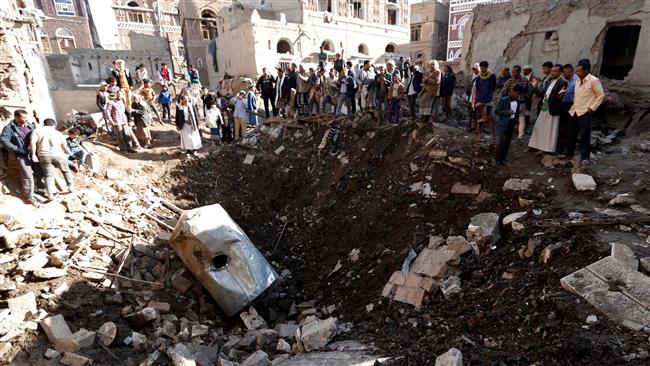
RNA - The consignment involved 30 million rounds of ammunition – including 13,492,927 bullets for AK-47 assault rifles and 3,063,276 rounds of sniper ammunition. Back in 2014, two British arms dealers asked the British Department for International Trade (DIT) to approve their sales of the Bosnian-made rounds to Saudi Arabia.
The DIT took 14 months to examine the request, despite normally processing such applications within 20 days. It eventually rejected it under the European Union and domestic arms export licensing criteria, which allow rejection of such applications if they seek to export arms to sanctioned countries or where there is suspicion that the arms could end up in the wrong hands. The brokers finally dispatched the ammunition to Saudi Arabia in two consignments through Bosnia.
This is not the first time that Britain did not exercise the promptness, which is expected of it in the process. Some watchdogs, including Amnesty International, report that American and British arms always end up through pipelines into Syria, meaning their military hardware finds its way to terrorists including ISIL and Al-Qaeda. Further still, they accuse Saudi Arabia of arming Takfiri terrorist groups, whose mentality is informed by the kingdom’s radical Wahhabi ideology. Mind you, London is already the target of strong criticism from rights groups for its arms sales to Saudi Arabia during Riyadh’s 2015-present war on Yemen.
Since Saudi Arabia entered the conflict and began to conduct airstrikes, the British government has sold the kingdom more than £3.6 billion worth of arms. Throughout the duration of its involvement in the conflict, the Saudi-led coalition in Yemen (formed by Saudi Arabia and other Persian Gulf countries, such as Kuwait, United Arab Emirates, Bahrain, as well as Egypt) has used these arms to launch thousands of airstrikes, including attacks that have killed a documented 17,000 Yemeni civilians. As a result, Saudi Arabia and its coalition partners have been accused of attacks which may amount to war crimes and that are exacerbating an ongoing humanitarian crisis. Because of its role materially supporting Saudi Arabia’s actions, the UK has also been accused of complicity in the kingdom’s war crimes.
The UK has been a major arms dealer to Saudi Arabia. The Campaign Against Arms Trade asserts that the British government is intimately involved in these deals because they are operated through government-to-government contracts. Saudi Arabia has used these arms, including bombs and cluster munitions, in unlawful attacks on the Yemeni population.
It is past time for the United Nations to address the use of British munitions in the Yemen war and the UK’s possible complicity in Saudi war crimes. The UN should raise its concerns and call for the suspension of all arms sales until an independent inquiry has looked into the alleged violations of international law.
Even while it is deepening its material connections with Saudi Arabia through increased arms sales, the UK has approved licenses for arms deals to another 20 countries which are considered human rights abusers by the British government itself. Among these countries is Bahrain, which receives millions of dollars worth of arms, and has established a British naval base as part of a defense agreement between the two countries.
According to Fars News Agancy, the arms trade between the UK and Bahrain has continued despite the systematic and violent suppression of political dissent since the peaceful pro-democracy movement of 2011. In April 2011, the UK government approved licenses to export body armor, direct view imaging equipment, training hand grenades, and small weapons. This trade has raised concerns about the potential use of the materiel to violently repress peaceful demonstrations in Bahrain.
Despite the claims of the British government, the sale of arms to Saudi Arabia and other human rights abusers makes the UK actively complicit in their violations, including the Saudi-led coalition’s unlawful attacks on the Yemeni population and Bahrain’s violent crackdown on protestors. The UK government should immediately halt all arms sales to these regimes suspected of falling short of their international human rights commitments.
Further on, the UK government should stop making excuses for the Saudi-led coalition and its half-hearted investigations into deadly air attacks. The UK government has been complicit in the atrocities carried out against Yemeni people, and cannot stop them from getting justice.
847/940